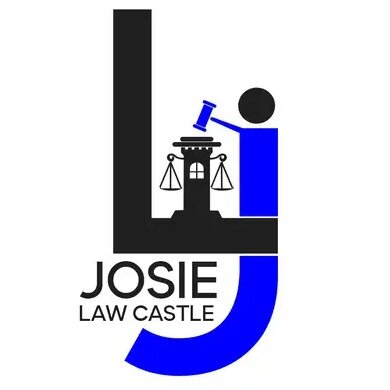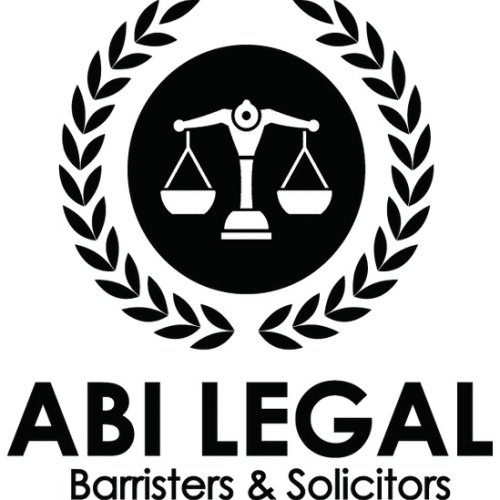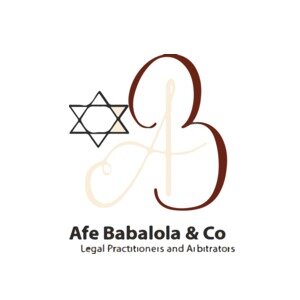Best Financial Services Regulation Lawyers in Nigeria
Share your needs with us, get contacted by law firms.
Free. Takes 2 min.
Or refine your search by selecting a city:
List of the best lawyers in Nigeria
Legal guides written by Adeola Oyinlade & Co:
- Procedure and Requirements for Work Permit and Visas in Nigeria
- The Step-By-Step Procedure of How to Apply for Microfinance Bank License Online in Nigeria
- How to Ensure the Smooth Recognition and Enforcement of Foreign Judgments in Nigeria
About Financial Services Regulation Law in Nigeria
Financial Services Regulation in Nigeria is primarily governed by a combination of statutes, regulatory bodies, and guidelines that aim to ensure the stability and integrity of the financial system. The Central Bank of Nigeria (CBN), the Nigerian Deposit Insurance Corporation (NDIC), the Securities and Exchange Commission (SEC), and the National Insurance Commission (NAICOM) are some of the key regulatory authorities involved in this sector. They oversee activities ranging from banking, insurance, and pensions to capital markets, ensuring that financial institutions conduct their operations in a safe and sound manner, protecting the interests of consumers and maintaining systemic stability.
Why You May Need a Lawyer
There are several instances where legal advice may be necessary in the realm of financial services regulation. Some common situations include:
- Disputes with financial institutions over banking or investment services.
- Understanding complex regulatory requirements for starting a financial services business.
- Dealing with compliance issues or investigations by regulatory bodies.
- Navigating legal aspects of mergers and acquisitions involving financial institutions.
- Handling litigation related to financial transactions or services.
- Ensuring compliance with anti-money laundering regulations.
Local Laws Overview
The financial regulatory framework in Nigeria is comprehensive and encompasses various laws and regulations, including:
- Banking: Governed by acts like the Banks and Other Financial Institutions Act (BOFIA), which regulates banking licenses, operations, and compliance requirements.
- Securities: Managed under the Investment and Securities Act, primarily enforced by the SEC to support transparent and fair capital markets.
- Insurance: Regulated under the Insurance Act, overseen by NAICOM to maintain the integrity of the insurance industry.
- Pensions: Governed by the Pension Reform Act, regulating funds and schemes for retirement savings accounts.
- Anti-Money Laundering: The Nigerian Financial Intelligence Unit enforces laws to prevent money laundering and terrorism financing.
Frequently Asked Questions
1. What is the role of the Central Bank of Nigeria in financial regulation?
The CBN is the apex monetary authority responsible for regulating and supervising banks and other financial institutions, ensuring monetary and financial system stability.
2. How do I start a financial services company in Nigeria?
You must comply with the regulatory requirements set by appropriate bodies like the CBN, SEC, or NAICOM, including obtaining necessary licenses and ensuring capital adequacy.
3. What are the consumer protection measures in the financial sector?
Regulatory bodies have established guidelines to protect consumers, such as disclosure requirements, fair lending practices, and dispute resolution mechanisms.
4. How does the Investment and Securities Act affect me as an investor?
It provides the legal framework for securities transactions, ensuring fair practices and protection of investors' interests in the capital market.
5. What should I do if I suspect a financial service provider is acting unlawfully?
You can report the misconduct to the relevant regulatory body, such as the CBN, SEC, or NDIC, which provides oversight and can conduct investigations.
6. Are there specific regulations for fintech companies?
Yes, fintech companies must also adhere to specific regulations set by the CBN, focusing on innovation while ensuring consumer protection and system stability.
7. How can I resolve a banking dispute?
Start by addressing the concern with your bank's customer service. If unresolved, escalate the issue to the CBN’s Consumer Protection Department.
8. What is the penalty for non-compliance with financial regulations?
The penalties vary depending on the regulation breached but can include fines, suspension of licenses, or more severe legal actions.
9. How are insurance companies regulated in Nigeria?
They are regulated by NAICOM, which sets standards for licensing, operation, financial practices, and consumer protection.
10. What is the role of the Nigerian Deposit Insurance Corporation?
The NDIC insures deposits, offers financial stability, and manages bank liquidations to protect depositors.
Additional Resources
For further information and assistance, consider the following resources:
- Central Bank of Nigeria (CBN)
- Nigerian Deposit Insurance Corporation (NDIC)
- Securities and Exchange Commission (SEC)
- National Insurance Commission (NAICOM)
- Nigeria Financial Intelligence Unit (NFIU)
- Federal Competition and Consumer Protection Commission (FCCPC)
Next Steps
If you find yourself needing legal assistance in financial services regulation, take the following steps:
- Identify and articulate the specific legal issue or query you are facing.
- Find a lawyer or law firm with expertise in financial services regulation in Nigeria.
- Prepare all relevant documentation and information to present to your legal advisor.
- Discuss your case and explore possible legal strategies and solutions.
- Ensure any legal advice or actions are in compliance with Nigerian laws and regulations.
Lawzana helps you find the best lawyers and law firms in Nigeria through a curated and pre-screened list of qualified legal professionals. Our platform offers rankings and detailed profiles of attorneys and law firms, allowing you to compare based on practice areas, including Financial Services Regulation, experience, and client feedback.
Each profile includes a description of the firm's areas of practice, client reviews, team members and partners, year of establishment, spoken languages, office locations, contact information, social media presence, and any published articles or resources. Most firms on our platform speak English and are experienced in both local and international legal matters.
Get a quote from top-rated law firms in Nigeria — quickly, securely, and without unnecessary hassle.
Disclaimer:
The information provided on this page is for general informational purposes only and does not constitute legal advice. While we strive to ensure the accuracy and relevance of the content, legal information may change over time, and interpretations of the law can vary. You should always consult with a qualified legal professional for advice specific to your situation.
We disclaim all liability for actions taken or not taken based on the content of this page. If you believe any information is incorrect or outdated, please contact us, and we will review and update it where appropriate.
Browse financial services regulation law firms by city in Nigeria
Refine your search by selecting a city.

















